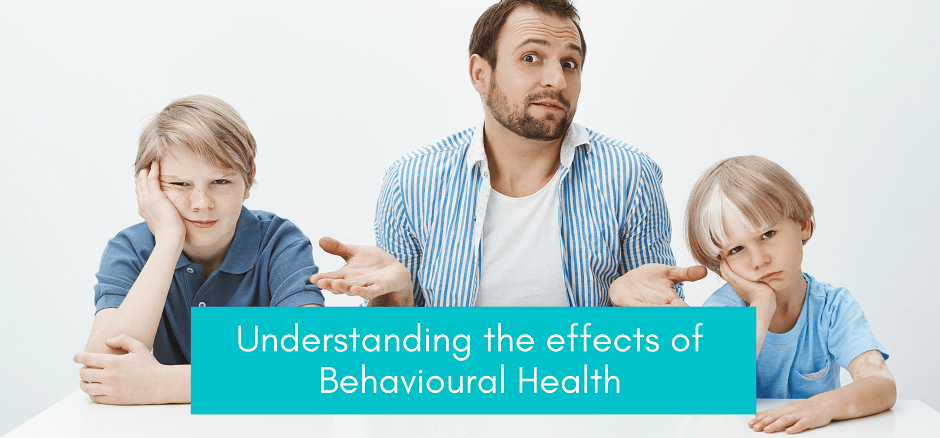We are all defined by our behaviours. Literally so. Our behaviours define how we engage with not only the external world but also reflect on how we engage with ourselves. It is this engagement that drives the world around us… And we hardly ever consider this fact! Ain’t this true?
I am not a Behavioural Health Expert, nor a Mental Health Expert. However, there are many who practice without many credentials. In fact, the rulings and regulations around the required credentials for counselling in India are also still evolving. But yes, since I have been a business professional, and worked through people’s behaviours and also suffered business behaviours, and because I now work in the Mental Health and Well-Being space, I am taking the liberty of expressing the opinions of a minion from this field…
As per Wikipedia, the word ‘behaviour’ extends itself to not just individuals and human beings but also to all other living beings, systems or artificial entities in conjunction with themselves or their environment. How we react or our mannerisms, as they play out have been ensconced under the apparel of behavioural sciences! This ‘science’ of behavioural sciences is studied not only with respect to human beings today, but also cultures, systems etc. So much so that a lot of research is today happening on Behavioural Economics as well! Ironically as it may sound, our behaviours are being studied for their effects on the growth of the economy and for many business professionals like us, for how to use these behaviours for economic gains for the business.
Also Read: The Biopsychosocial Model – Mind, Body, And Behavior
I wondered what created these behaviours. So, I researched various elements that surround us. And hence I came upon the need to understand the culture and if this shaped our behaviours. The discovery that both cultures and behaviours do get driven and impacted by each other came upon with some apprehension. It is said that human behaviour is affected by both genetic inheritances as well as experience. This is quite a deep-seated aspect. And a very critical part of our mental frameworks. This leads to the belief that to support our behavioural health, it is important to understand the culture to which one belongs and, maybe, similar aspects need to be applied to the behaviours of other abstracts of our environment.
Also Read: What Is The Wake-Up Call?
If we look at the world as one large community and one large economy, these are invariably driven by not just the basic human instincts but also coloured by the effects of the various cultures which do, in turn, get determined by the geography, the resource availability, the climate and many other natural factors and how overcoming challenges arising of these for survival have evolved over centuries.
As the world got knitted together not just by the expanse of the earth, but more through transportation and communication channels, bringing with it speed, new patterns of expected behaviours have evolved. Many of us in the corporate world also undergo training on managing cultural diversities for better work output. However, if one looks deeper, the key aspects and strains of human behaviour remain the same.
One thing is sacrosanct through all of this. Those behaviours are the defining factors for humans, systems and cultures – for output, end result and the final product. It is well understood that the environment affects, rather shapes these behaviours and vice versa. And, thus it becomes important to understand the environment to be able to shape the behaviours. Especially so when we all exist in such a VUCA world!
This is true not just for our day-to-day living, as behaviours add to the quality of it, but also true for our business environments, our political environments as well as the social fabric which is an essential core of our survival. The ongoing pandemic over the last two years has only made our already VUCA (Volatile, Uncertain, Complex, Ambiguous) world, only more so. The effects of these are telling. Telling on people’s health, homes, and other behaviours as well – social, economic etc.
There is an increased focus on Behavioural and Mental Health today. This heightened focus has been driven by the widened need supply gap hugely as a key after effect of the pandemic. There are an enormous number of mental health start-ups that have sprung up across varied geographies – some serious players, some fly-by-night operators. The need of the hour today is not just better regulations and governance by the respective authorities but by our own selves as well to recognise our issues well in advance and nip the evil in the bud.
Awareness about mental health and mental well-being needs to be given due importance. This by educators, by employers, in fact by each one of us. While we all look out for developmental anomalies and mental disease evidence very well and do a good curative job of it, the focus needs to also shift to creating strong mental frameworks in the first place.
With strong mental frameworks driven right through our developmental years, we will all be better equipped to handle our emotional ups and downs largely motivated by our VUCA world. And maybe a focus on creating a mentally strong human force actually leads to a less toxic and less VUCA world.
And while we work around the above through research-based methodologies, let us all focus on looking after our Behavioural Health today and give it the requisite attention – recognise and understand our own pain points, and address those pain points by seeking professional help, in time. Ironically enough, the same can be said for systems, businesses etc.!!
Let me conclude by saying that if health is wealth, our behaviours are the cornerstones or the tombstones of everything around us, be these our lives, our health, our work or the overall economy. So, let’s look after our Behavioural Health!!



